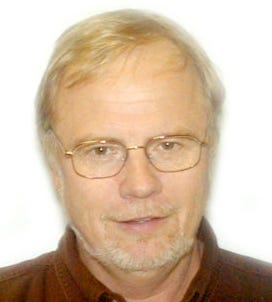A Word for Jeff
I met Jeff Perry around 1970. At the time our politics were similar, what I would today call far left. He was briefly involved in our little hippy-dippy radical underground newspaper in New Brunswick, N.J. We were also running buddies at the epic MayDay 1971 mass civil disobedience in Washington D.C. against the Vietnam War'. He had been a student at nearby Princeton Univ. I only found out about his passing with this article in Portside, so I can’t say we were close.
After decades of separation, I became aware of him in recent decades through his tireless work on the legacy of Hubert Harrison, a prominent African-American socialist in the beginning of the 20th Century. I happened to bump into him at some Washington D.C. affair — I’ve forgotten what — and we resolved to stay in closer touch. But we didn’t.
We did talk by phone a month or two ago. I was trying to get him interested in a project of mine — to address the gulf between black and white socialists in the U.S. We agreed to talk again soon, but that was the last I heard from him. He did mention health problems, and as I think about it now. he may have known that he didn’t have much time left. At any rate, he wanted to call me to ‘touch base,’ so he was still thinking of work to come.
My main reason for writing this is to note his achievements. I believe he was a principal in the great postal wildcat strikes of the early 70s. He was definitely, heavily involved in rank-and-file agitation in his postal worker union, which union local he described to me as mobbed up. That couldn’t have been easy.
Later he got into heavy intellectual labor on the subject of U.S. racism, powered by a string of post-graduate degrees in history. One product was his lengthy biography of Harrison and related work. Another was his stewardship of the papers of Theodore Allen, author of “The Invention of the White Race,” a two-volume door-stopper. I’ve a copy but have not cracked it yet. Much more detail is here.
I regret losing the opportunity to endlessly hash out with him the themes animating his work, which in recent years have come to rise to the top of my interests as well, after a lifetime of inattention to the problems of race in the U.S.
More people should know about him. I’m also certain more people should know about Hubert Harrison.

